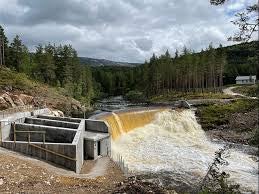Research into climate change has shown that more frequent droughts and heatwaves could reduce the ability of electricity plants to generate power by the middle of the century, but the authors suggest that this could be offset by increasing efficiency.
The paper by Michelle TH van Vliet et al, which was published online in Nature Climate Change, presents a global assessment of the vulnerability of the world’s current hydropower and thermoelectric power systems. Together these currently provide 98% of the world’s electricity supply.
The authors used a coupled hydrological-electricity modelling framework with data on 24,515 hydropower and 1427 thermoelectric power plants. They found that reductions in streamflow and increased water temperatures could reduce the generating capacity of 61-74% of hydropower plants in the dataset from 2040-2069. Results also showed that global annual hydropower capacities are expected to fall by up to 3.6% in the 2050s and 6.1% in the 2080s, as a consequence of reduced streamflow.
However, the authors suggest that increasing the efficiency of hydropower plants by 10% could be enough to offset annual reductions in capacity. They add that transitions in the electricity sector with a stronger focus on adaptation, in addition to mitigation, are highly recommended to sustain water-energy security in the coming decades.
The full article can be seen at http://www.nature.com/nclimate/journal/vaop/ncurrent/full/nclimate2903.html






